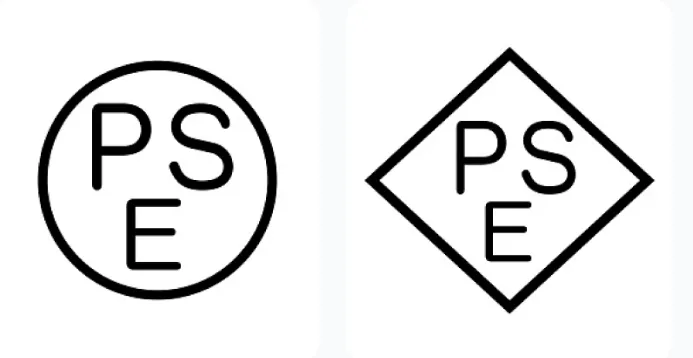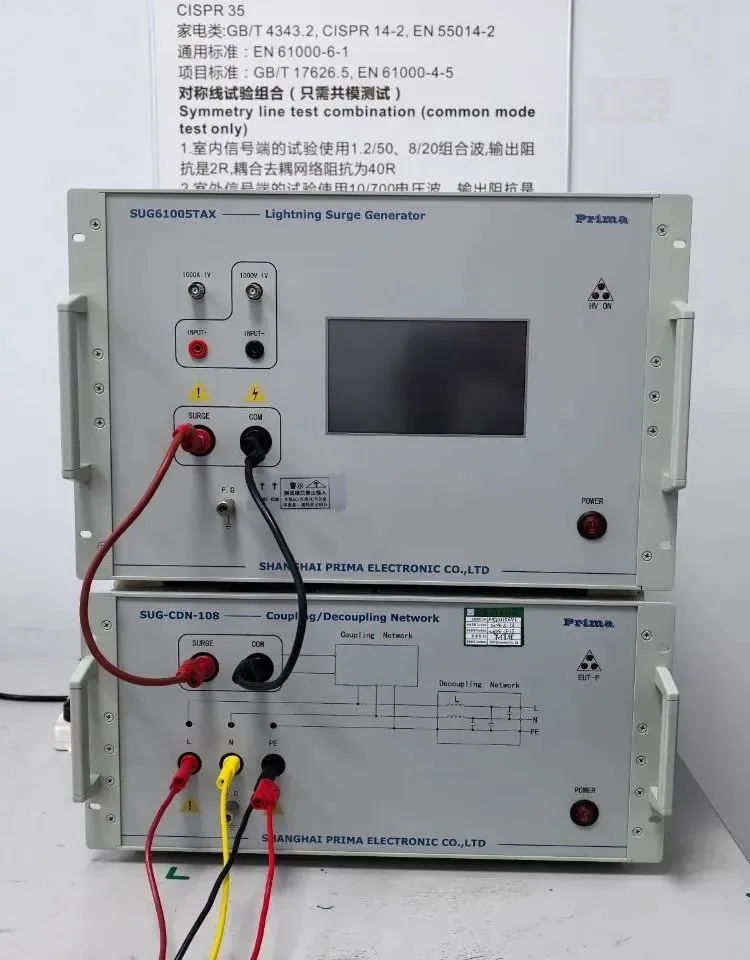
What is PSE Japan Certification?
PSE (Product Safety of Electrical Appliance & Material)certification in Japan is officially referRED to as a "Conformity Inspection." It is a mandatory certification system for electrical products entering the Japanese market. The certification uses a unified pse markand enforces stricter penalties on importers.

Electrical products in the Japanese market are regULated under the Electrical Appliance and Material Safety Act, established by the Japanese government and the Ministry of Economy, Trade and Industry (METI). Products are classified into:
1. Specified Electrical Appliances (Category A)
2. Non-specified Electrical Appliances (Category B)
Products under Category Amust pass third-party certification by a METI-authorized certification body, obtain a conformity certificate, and display a diamond-shaped PSE markon the label before entering the Japanese market.
For Category B, which falls under the round PSE markrequirements, manufacturers may conduct their own testing and inspections. After self-declaration of conformity, the products can legally enter and be sold in the Japanese market.
Regulations
1. Specified Electrical Appliances (Category A)
Requirements:
emc testing + Safety testing + Factory inspection = Diamond-shaped PSE mark
Process:
Before entering the Japanese market, manufacturers must obtain a conformity certificate from a METI-authorized third-party certification body.
Only after obtaining this certificate can they label the product with the diamond-shaped PSE mark.
### 2. Non-specified Electrical Appliances (Category B)
Requirements:
emc testing + Safety testing = Round PSE mark
Process:
As long as the product meets the relevant requirements of the Electrical Appliance and Material Safety Act, manufacturers may apply the round PSE mark by themselves.
Applicable Products
Category A: Specified Electrical Appliances (10 Categories)
① Cables and cords
② Fuses
③ Wiring devices
④ Current limiters
⑤ Single-phase small power transformers and discharge lamp ballasts
⑥ Heating appliances
⑦ Electric motor-operated appliances
⑧ High-frequency depilators
⑨ Electric appliances using AC power supply other than items 2–8 listed above
⑩ Portable generators
Category B: Non-specified Electrical Appliances (12 Categories)
① Cables, cords, and heating cables
② Wireways, fittings, and cable wiring switch boxes
③ Fuses
④ Wiring devices
⑤ Single-phase small power transformer voltage regulators and discharge lamp ballasts
⑥ Small A.C. motors
⑦ Heating appliances
⑧ Electric motor-operated appliances
⑨ Luminaires and optical appliances and machines
⑩ Electronic appliances
11 A.C. appliances and machines other than items 3–10 listed above
12 Lithium-ion batteries
Required Documents for Application
1. Category A (Specified Electrical Appliances)
① pse certification application form and authorization letter
② Factory inspection report
③ Copies of business licenses for applicant, manufacturer, and production factory
④ Explanation of differences between models under the same application unit
⑤ cb certificate and test report
⑥ Product label
⑦ Product manual in Japanese
⑧ Product dimension drawings, general assembly drawings, circuit diagrams, and PCB layout
⑨ Equipment sample inspection report
2. Category B (Non-specified Electrical Appliances)
① PSE certification application form and authorization letter
② Explanation of differences between models under the same application unit
③ CB certificate and test report
④ Product label
⑤ Product manual in Japanese
⑥ Product dimension drawings, general assembly drawings, circuit diagrams, and PCB layout
⑦ Equipment sample inspection report
Products falling within the scope of PSE certification must obtain it before being exported to Japan. If the product passes third-party certification, it gains broader recognition from customers and other organizations—opening up more business opportunities.
More: emc test lab | ce marking in usa | wercs certification | reach rohs compliance
Email:hello@jjrlab.com
Write your message here and send it to us
 What are the Differences Between EN 71 and ASTM F9
What are the Differences Between EN 71 and ASTM F9
 ASTM F963-23 Lithium-Ion Battery Requirements for
ASTM F963-23 Lithium-Ion Battery Requirements for
 Tiny Toys Bus Pass ASTM F963
Tiny Toys Bus Pass ASTM F963
 ASTM-F963-17 Non-Ride-On Toys Testing
ASTM-F963-17 Non-Ride-On Toys Testing
 Amazon ASTM F963 Pacifier Compliance Testing
Amazon ASTM F963 Pacifier Compliance Testing
 RCM AS/NZS CISPR 32:2023 Testing for Power Adapte
RCM AS/NZS CISPR 32:2023 Testing for Power Adapte
 How to get Australia SAA Compliance?
How to get Australia SAA Compliance?
 Does Canada Require RoHS Compliance
Does Canada Require RoHS Compliance
Leave us a message
24-hour online customer service at any time to respond, so that you worry!




